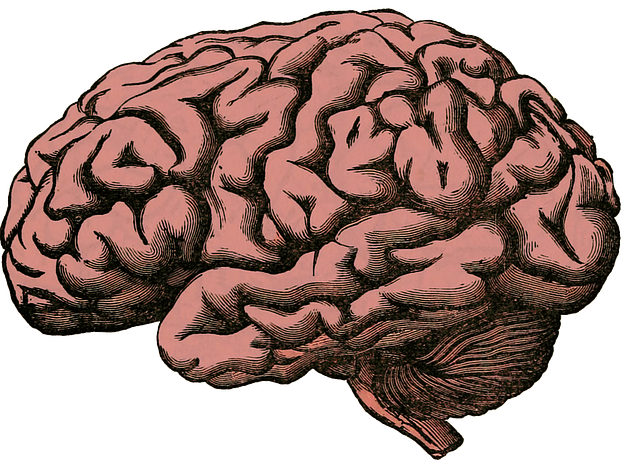Mental Health Crisis Hotlines, including specialized Castle Rock Post-Traumatic Stress Disorder (PTSD) Therapy services, offer 24/7 support for emotional distress. Trained professionals provide active listening, crisis intervention, and resources for stabilization and follow-up care. These hotlines facilitate access to non-judgmental spaces for expression and perspective, empowering individuals to navigate mental health challenges before and after seeking long-term therapy or counseling. Castle Rock PTSD therapy uses evidence-based practices, including Compassion Cultivation and Mindfulness techniques, to help trauma survivors manage symptoms and build resilience. Accessing these hotlines and complementary resources like Mental Wellness Podcasts promotes overall mental wellness and prevents future crises.
“In today’s fast-paced world, mental health crises can strike suddenly, leaving individuals in a state of distress. Enter mental health crisis hotline support services—a vital resource offering immediate assistance and guidance. This article explores the transformative power of these hotlines, focusing on Castle Rock Post-Traumatic Stress Disorder (PTSD) therapy as a game-changer in crisis intervention. From understanding hotline functionalities to post-crisis care strategies, we delve into effective ways to access and utilize these services for recovery.”
- Understanding Mental Health Crisis Hotlines: A Lifeline for Many
- The Impact of Castle Rock Post-Traumatic Stress Disorder (PTSD) Therapy
- Accessing and Utilizing Crisis Support Services
- Building Resilience: Post-Crisis Care and Recovery Strategies
Understanding Mental Health Crisis Hotlines: A Lifeline for Many

Mental Health Crisis Hotlines serve as a critical lifeline for individuals grappling with intense emotional distress, offering immediate support and guidance when professional help is needed most. These 24/7 services are designed to provide a safe space for people experiencing a range of mental health challenges, from acute depression prevention and anxiety relief to managing symptoms of post-traumatic stress disorder (Castle Rock Post-Traumatic Stress Disorder Therapy). Trained professionals offer active listening, crisis intervention, and resources for follow-up care, empowering individuals to navigate turbulent times.
The significance of these hotlines lies not only in their immediate accessibility but also in the human connection they foster. In a world where mental health issues are increasingly prevalent, these services offer a non-judgmental space where individuals can express their feelings, gain perspective, and receive the support needed to stabilize and seek long-term solutions, be it through therapy, counseling, or other interventions focused on mood management.
The Impact of Castle Rock Post-Traumatic Stress Disorder (PTSD) Therapy

Castle Rock Post-Traumatic Stress Disorder (PTSD) therapy offers a lifeline to individuals grappling with the profound effects of trauma. This specialized treatment goes beyond traditional psychotherapy by integrating evidence-based practices such as Compassion Cultivation and Mindfulness techniques, proven effective in mitigating PTSD symptoms. By addressing the unique challenges faced by survivors, from flashbacks and nightmares to heightened anxiety and avoidance behaviors, this therapeutic approach fosters resilience and empowers individuals to reclaim their lives.
Beyond the immediate relief of Anxiety Relief strategies, Castle Rock PTSD therapy focuses on long-term risk management planning for mental health professionals. It equips clients with coping mechanisms, enhances self-awareness, and promotes healthy relationships, laying the groundwork for sustained recovery. Through this comprehensive approach, survivors not only find solace from their past but also develop tools to navigate future challenges, ultimately transforming their lives and contributing to a more supportive and compassionate community.
Accessing and Utilizing Crisis Support Services

Accessing crisis support services is a vital step towards addressing and managing mental health challenges, especially during moments of acute distress. These services are designed to provide immediate assistance, ensuring individuals in crisis receive the necessary care promptly. One effective resource for those dealing with issues like Castle Rock Post-Traumatic Stress Disorder (PTSD) Therapy is dedicated hotline numbers. These hotlines offer confidential and non-judgmental spaces where individuals can express their concerns and be connected to qualified professionals who can guide them through their current crisis.
Utilizing these services involves simply dialling the designated number, often free of charge, from any phone. Trained volunteers or mental health professionals answer calls, offering active listening and a range of support strategies tailored to individual needs. Whether it’s providing reassurance, guiding individuals towards local resources, or offering coping mechanisms for emotional regulation, these hotlines play a crucial role in promoting mental wellness. For those seeking additional guidance, a Mental Wellness Podcast Series Production can complement hotline services by providing accessible educational content on various aspects of mental health management.
Building Resilience: Post-Crisis Care and Recovery Strategies

After an individual experiences a mental health crisis, providing post-crisis care and supporting their recovery journey is paramount to building resilience. This phase involves comprehensive strategies tailored to address the unique needs of each person. Castle Rock Post-Traumatic Stress Disorder (PTSD) Therapy, for instance, focuses on helping individuals process traumatic events and manage symptoms effectively. Through individual or group therapy sessions, clients develop coping skills essential for navigating emotional challenges.
The process often includes risk assessment for mental health professionals to ensure a safe and supportive environment. By fostering positive thinking and promoting self-care practices, individuals gain tools to prevent future crises. Coping skills development is a cornerstone of this phase, empowering people to manage stress, regulate emotions, and cultivate resilience, thereby enhancing their overall well-being.
Mental health crisis hotline support services play a pivotal role in assisting individuals navigating severe emotional distress. As evidenced by the effectiveness of Castle Rock Post-Traumatic Stress Disorder (PTSD) therapy, specialized interventions can significantly improve outcomes. By providing accessible and confidential resources, these hotlines empower people to seek help promptly. Through post-crisis care and recovery strategies, they foster resilience, offering a lifeline for those in mental health emergencies. Utilizing these services is a proactive step towards building stronger, more resilient communities.














